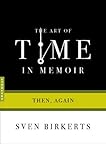 |
| Author Lee Child |
Born is Covertry, England in 1954, author Lee Child finished law school in Sheffield and ended up in the theater. He then joined the Grenada Television company as a director, where he remained for the next 18 years. He was fired at the age of 40 as a result of restructuring, and, having been a voracious reader, decided to try his hand at writing.
The result was a successful novel by the name of Killing Floor, the first in the Jack Reacher series. The Killing floor, which launched the Reacher series of thrillers, has grown in sales and impact with every new installment.
In the following article, written for Writer’s Digest magazine, he explains what really keeps a reader reading until the end. Like his famous protagonist, Jack Reacher, Lee Child is a bit of a rogue badass—especially when it comes to his thoughts on writing, and debunking popular myths. Here, he tells us “Why Writing Rules are Mostly Wrong,”
Show, Don’t Tell
Picture this: In a novel, a character wakes up and looks at himself in the mirror, noting his scars and other physical traits for the reader.
“It is completely and utterly divorced from real life,” Child said.
So why do writers do this? Child said it’s because they’ve been beaten down by the rule of Show, Don’t Tell. “They manufacture this entirely artificial thing.”
“We’re not story showers,” Child said. “We’re story tellers.”
Child said there’s nothing wrong with simply saying the character was 6 feet tall, with scars.
After all, he added—do your kids ever ask you to show them a story? They ask you to tell them a story. Do you show a joke? No, you tell it.
“There is nothing wrong with just telling the story,” Child said. “So liberate yourself from that rule.”
Child believes the average reader doesn’t care at all about telling, showing, etc. He or she just wants something to latch onto, something to carry them through the book. By following too many “rules,” you can lose your readers.
Don’t Start With the Weather
“If the weather is what’s on your mind, start with it,” Child said.
Simply put, all-time great Alistair MacLean did it all the time. Enough said.
Suspense is Created by X, Y, or Z
For instance: Suspense is created by having sympathetic characters. More and more, Child said, this rule doesn’t add up. Case in point: In The Runaway Jury by John Grisham, Child said there isn’t a sympathetic character in the entire book—there are bad guys, and worse guys. Instead of sympathetic characters, the book is driven by what the verdict of the trial at the heart of the story will be.“And that’s how you create suspense,” he said—it all boils down to asking a question and making people wait for the answer.
Child added that one thing he has learned throughout his career as a television writer and novelist is that humans are hard-wired to want the answer to a question. When the remote control was invented, it threw the TV business through a loop. How would you keep people around during a commercial? So TV producers started posing a question at the start of the commercial break, and answering it when the program returned. (Think sports—Who has the most career grand slams?) Even if you don’t care about the answer, Child said, you stick around because you’re intrigued.
Ultimately, he said writing rules make the craft more complicated than it really is—when it comes down to it, it’s a simple thing. “The way to write a thriller is to ask a question a the beginning, and answer it at the end,” he said.
When he’s crafting his books, Child doesn’t know the answer to his question, and he writes scene by scene—he’s just trying to answer the question as he goes through, and he keeps throwing different complications in that he’ll figure out later. And that very well may be the key to his sharp, bestselling prose.
“For me the end of a book is just as exciting as it is for a reader,” he said.
You might also like:
Ann Rule on Breaking Into True Crime
Marketing Essentials Every Writer Should Know About
Thriller Writing Made Easy: 4 Steps to Starting a Thriller
Catherine Coulter: 9 Simple Ways To Be a Better Writer
Giveaway: Win a day pass to ThrillerFest, featuring Jack Higgins, Lee Child, Ann Rule and many others
If you enjoyed this post, please consider leaving a comment

















































